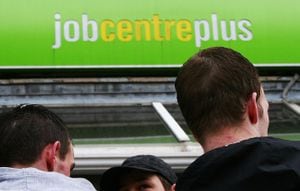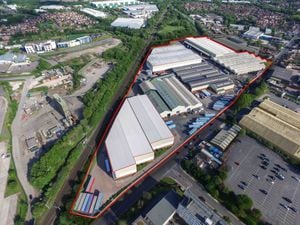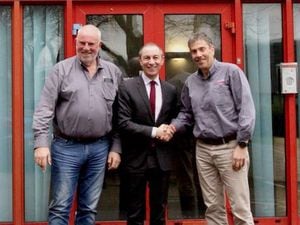Employment at all time high but West Midlands unemployment rises
Employment has reached an all-time high in the UK and pay growth picked up pace, easing the pressure on cash-strapped households confronted by higher inflation.

The Office for National Statistics said the number of people in work nationally rose by 125,000 to 32.07 million in the three months to June, with the employment rate climbing by 0.3 per cent to a record 75.1 per cent.
In the West Midlands the number in work was 2.67m, a rate of 72.3 per cent.
The jobs market remained a bright spot for the economy, with the unemployment rate dropping by 0.2 per cent to 4.4 per cent for the three months to June, its lowest level since 1975.
The number of people out of work dropped by 57,000 on the quarter to 1.48m - a 12-year low, but the West Midlands saw the number unemployed rise by 3,000 to 164,000 – 5.8 per cent of the working population.
Meanwhile, the so-called claimant count fell nationally by 4,200 in July to 807,800.
The number claiming in the West Midlands was down 970 to 85,505 (2.4 per cent of the working population).
The biggest drop of 160 was in Sandwell to 7,055 (3.5 per cent). There were 105 fewer claimants in Walsall at 4,890 (2.9 per cent), Dudley was down 70 at 5,735 (three per cent) and Wolverhampton dropped by 65 to 6,705 (4.2 per cent).
Stafford had 20 fewer claiming at 730 (0.9 per cent), Cannock Chase was down 20 to 785 (1.3 per cent), Lichfield fell by 10 to 445 (0.7 per cent) and South Staffordshire reduced by five to 785 (1.2 per cent).
For Wyre Forest, including Kidderminster, the number of claimants was down 10 to 760 (1.3 per cent)
Annual growth in wages was 2.1 per cent for April to June, up from a revised figure of 1.9 per cent for March to May.
Once bonuses are stripped out, pay expanded by 2.1% over the period, rising from 2%.
However, once inflation is taken into account, total pay in real terms sank by 0.5 per cent both including and excluding bonuses.
It comes as the cost of living - which has marched higher in response to the Brexit-hit pound - held steady at 2.6 per cent in July, in line with the rate for June.
Employment Minister Damian Hinds said: "These statistics show that record levels of people are in work across the country and earning a wage, which is great news.
"Over the past year the rise in employment has been overwhelmingly driven by permanent and full-time jobs, as employers continue to invest in Britain's strong economy.
"The task now is to build on this success through Jobcentre Plus and our employment programmes so that everybody can benefit from the opportunities being created."
Sterling, which has been in the doldrums this week, bounced on the news.
The pound was up 0.2% against the dollar at 1.28 US dollars, while the British currency flirted with 1.10 euros, up 0.3% on the day.
TUC general secretary Frances O'Grady said: "Rising prices and stagnant pay are a toxic combination for working people. This is the fourth month in a row where wages have fallen behind the cost of living.
"Ministers are sitting on their hands as another living standards crisis unfolds. It's time to boost wages by scrapping the pay restrictions in the public sector, investing in infrastructure, and increasing the minimum wage."
Labour market statistics for April 2017 to June 2017 showed a 125,000 rise in employment and 57,000 fall in unemployment.
Matthew Percival, CBI Head of Employment, said:
“Continuing strong employment growth is tainted by falling real wages, reducing household spending power.
“Separate figures confirm that productivity has been falling throughout 2017 – this matters as rising productivity is the only sustainable route to higher wages and better living standards.
“It’s therefore incumbent upon the Government to work with businesses to protect the UK’s flexible labour market, and design an industrial strategy that will drive productivity and wage growth.”





